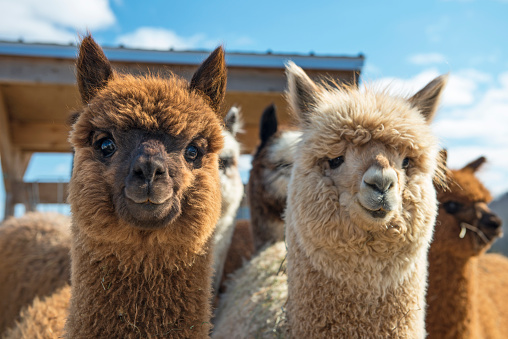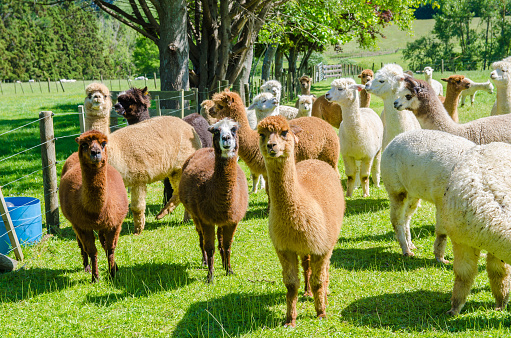Llama as well as alpaca are hoofed mammals. They were believed to have originated in South America’s Andes. It is part of the camel family. They have different sizes, hair styles, and face shapes. Alpaca thrives in areas with humid and wet foothills, while llama prefers the colder and dryer plains at higher altitudes. Both hoofed mammals are strictly herbivores. Their diet consists mainly of various types grass (and hay), leaves, lichens, and lichens. Llama as well as alpaca are believed to have been domesticated between 4000 and 5000 years ago. They are both some of the most beloved species in North America and South America. Although they are closely related, there are some differences in Llama’s size, morphology of the Face and Ears, fur, lifespan, and relationship with Humans. We’ll discuss the differences between an alpaca and a llama.
Alpacas have two breeds, the Suri alpaca or the Huacaya alpaca. They should be kept together in herds, where they can graze at the Andes of Southern Peru and Northern Chile, which are between 3,500 and 5,000 meters above the sea level. This animal species communicated with other animals using body language. It will spit when it is in distress, fearful, or to show its dominance. Llamas are believed to have domesticated Incas between 4,000 and 5,000 years ago. They prefer mountains over grasslands or deserts. Llamas can be classified into two types: the Ciara is a short-coated Llamas and Curacao is a medium-coated Llamas. Llamas are able to sense smell, hear and see clearly. Let’s take a look at all the differences between alpacas and llamas one-by-one.
1.Size
Llama can reach 10 inches higher than alpacas, and it can also grow to be heavier. Llama can weigh between 290 and 440 pounds, whereas alpacas rarely exceed 175 pounds.
2.Differences between Ears and Face
Alpaca has a short and straight face, with spear-shaped ears. The llama’s face is long and curvy, with banana-shaped ears.
3.Fur
Alpacas have one fur, which is very fine in texture. Alpacas are smaller than llama, but they produce more fleece. Alpacas come in more than 20 colors. They can be found in pure white, black, and many shades in between. However, llama’s have a double coat with a soft outer coat and coarse guard hairs on the surface. Llama don’t have much hair on their bodies, while alpacas have dense and fluffy hair.
4.Behavior
Llama is similar to alpaca because they are both social animals that often appear in large groups. Alpacas are more independent and courageous than llama, and llama can be used to protect small animals like alpacas and sheep. Llama can be friendly and will make a great pet. Alpacas are timid and quiet animals and can be difficult to train because of their intelligence.
5.Lifespan
Llamas can live up to 30 years in the wild, but most often they are seen living between 15 and 25 years. Although the avarage life expectancy of alpacas is much shorter in wild, they lived for 20 years in captivity.
6.Llama & Alpaca Importance for Humans
Llama as well as alpaca are two of the most important animals in Latin America. Llama is used to transport heavy loads and as a source of meat. Alpaca is rarely used for meat production. However, it is used to produce luxury fibres that are just as strong as silk and known for their strength and durability. Alpaca fibre is used to make sweaters, scarves and gloves as well as ponchos, scarves and socks.

